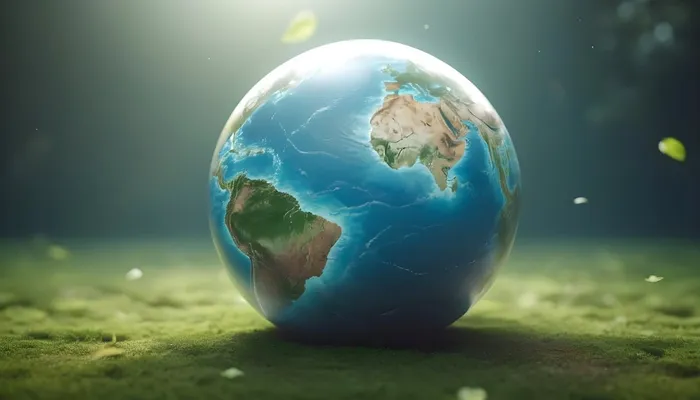Let us end poverty, slow the pace of global warming

This year’s World Environment Day focuses on land restoration, desertification and drought resilience, under the slogan “Our land. Our future. We are #GenerationRestoration”. Photo: Pixabay
By Blessing Manale
Today marks 51 years since the declaration of World Environment by the UN at the Stockholm Conference on the Human Environment from June 5 to 16, 1972, that had resulted from discussions on the integration of human interactions and the environment.
This year’s World Environment Day focuses on land restoration, desertification and drought resilience, under the slogan “Our land. Our future. We are #GenerationRestoration”.
The first World Environment Day in 1973 was held under the theme “Only One Earth” and has since been marked on June 5. The day has, post-apartheid, coincided with South Africa’s Youth Month and a broad-based campaign pegged as Environment Month in South Africa.
Today’s slogan resonates well with the 1973 alert of “Only One Earth” as we can, without doubt, witness the state of our planet and how human activity has ventured on a path of self-destruction characterised by rising carbon emissions, deforestation and land degradation, anthropogenic economic activities and unsustainable means of consumption and production.
Without immediate, science-based system-shifting action, the crisis poses an existential threat to humanity and ecological cohabitation.
The challenges for the next half decade
The finite goods and services that nature provide are vital for our well-being, a healthy planet and economic prosperity. We rely on it for food, medicine, clean air, water and protection from natural disasters, as well as for the health, cultural and aesthetic values.
In January 2020, the World Economic Forum estimated that half the world's gross domestic product (GDP), $44 trillion (R822 trillion), depends directly on the state of ecosystems.
At the same time, nature contributes to key ecosystem services for economic activities. The global value of ecosystem services in 2011, $125 trillion to $145 trillion, represents more than 150% of global GDP.
Climate change presents a multifaceted challenge for South Africa, with significant socio-economic, financial and environmental implications. With its diverse ecosystems and reliance on agriculture, mining and tourism, the country is particularly vulnerable to the effects of climate variability and extreme weather events.
We are in the final period of this crucial decade, and despite plans and initiatives to mobilise people at different levels, we are miles behind achieving the stipulated targets. We are about to bequeath to a generation that will recall the Stockholm Conference as nothing but an inheritance of disasters and a planet in intensive care.
Environmental impacts, such as biodiversity loss, habitat degradation and ecosystem disruptions, threaten natural resources and the livelihoods of those dependent on them. Additionally, the financial toll of climate change will place additional strain on public resources, affecting infrastructure, health care and disaster-response systems.
Empowering the youth and poverty in our lifetime
The youth of today are aware of the climate crisis we face. If globally agreed climate action plans are not implemented and targets like the capping of global warming to 1.5℃ above pre-industrial level are not achieved, then it will be the youth who will feel the brunt of the consequences. Fortunately, through various ways, the voice of the younger generation is being heard.
Young people have an increased awareness of the many social and environmental problems our world faces and the potential to tackle the problems; to take our societies towards a low-carbon and climate-resilient future.
Youth comprise a large part of the population which calls for employment for them, otherwise we will not achieve and sustain our development if the youth are alienated and not prepared and ready to lead their country.
The transition to a low-carbon economy carries the potential to increase job opportunities. Based on the data provided by the International Renewable Energy Agency, it is estimated that nearly 18 million people will have green jobs in the coming decade.
In line with global commitments to leave no one behind, reflected in the Just Transition Framework, we need the older generation to promote inclusive societies that guarantee equal opportunities. achieved by tackling structural inequalities through sustainability and future-oriented approaches in all policy areas.
How we, as South Africa, choose to mitigate and adapt to climate change is not only imperative for promoting equity, resilience and sustainability, but also for safeguarding South Africa’s future prosperity as we address the triple global crises: the climate emergency, biodiversity loss and pollution and waste.
Without immediate, science-based system-shifting action, the crisis poses an existential threat to humanity and ecological cohabitation – and our future generation and current generation of youth are doomed.

Blessing Manale is the head of communications and outreach at the Presidential Climate Commission.
BUSINESS REPORT